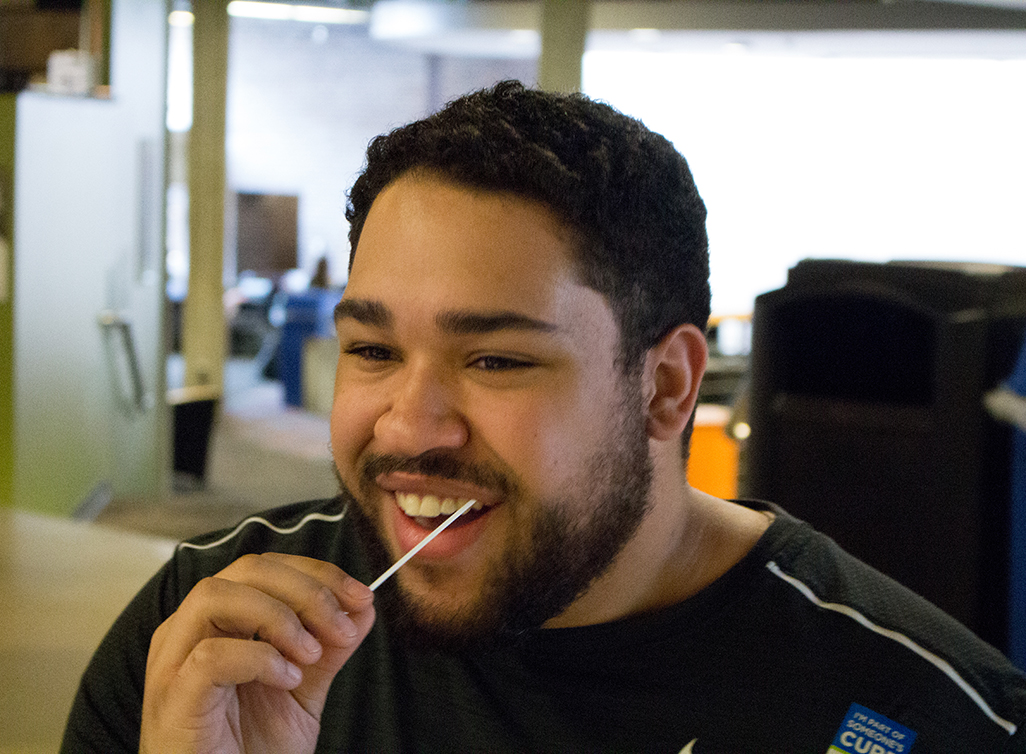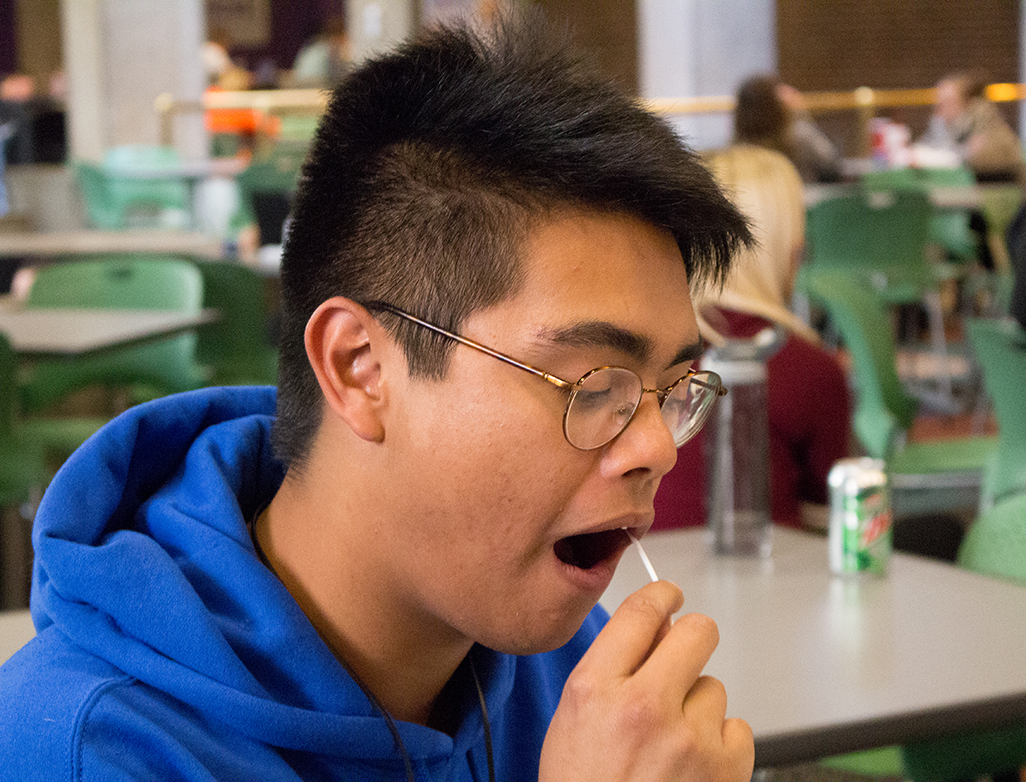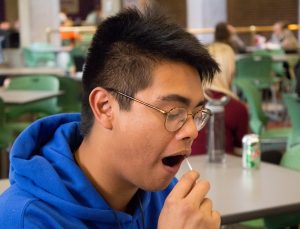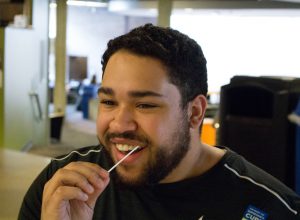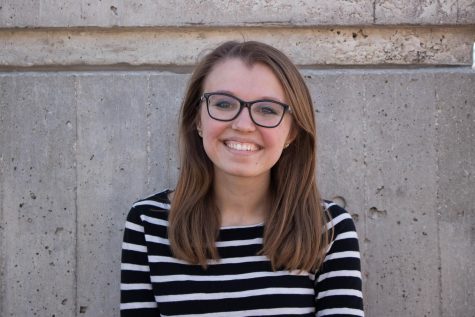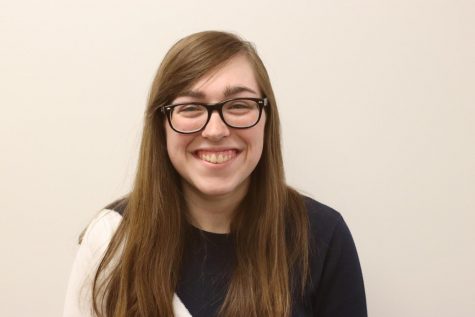Org advocates for marrow donors
Apr 13, 2017
UNI Be the Match is holding their first annual “Cheek Week” event this week, from April 10 to 14. The purpose of the event is to spread awareness of the organization and to help students sign up to be bone marrow donors so they can aid in saving the lives of leukemia, lymphoma and blood cancer patients.
The organization has tabled in Maucker Union each day this week from 10 a.m. to 2 p.m., helping students sign up.
Be the Match is a national registry of volunteer donors, which is operated by the National Marrow Donor Program (NMDP).
UNI’s Be the Match is a fairly new organization on campus, having just started in February. UNI is the fourth school in Iowa to get a Be the Match organization, after the University of Iowa (UI), Iowa State University (ISU) and Drake University. UNI Be the Match is currently made up of 20 students.
“Our main mission is to connect leukemia, lymphoma and blood cancer patients — or anyone in need of bone marrow — with students or people in the Cedar Falls community that are committed and willing to donate their bone marrow to save these people’s lives,” said Michelle Matchell, the president of the organization and a sophomore biology and biochemistry double major.
“When someone registers, they fill out a packet and we swab their cheek. That’s why we call it ‘Cheek Week,’” Matchell added.
She explained that the packets are then sent to the UI to be run through a DNA matching program. From there, a person’s human leukocyte antigen (HLA) type is taken and entered into an international registry.
According to Matchell, when someone has a cancer that requires help from a bone marrow donor, they go into the registry and try to find a match. Finding a perfect match is incredibly rare, with only a one in 540 chance.
“Someone who signs up from UNI to be in the registry could match with someone all the way across the world and save their life,” Matchell said. “It’s really special.”
If a match is found, they are contacted to schedule a physical examination, involving a blood test to make sure that the person is an absolute match. If it turns out that they are, the UI contacts them and schedules a time for them to donate.
Donors that are assigned to adults are more likely to donate stem cells, and those who are assigned to children are more likely to donate bone marrow.
“You stay overnight and they just make sure that everything is good. Everything is paid through the University of Iowa, so no expenses come to the donor,” Matchell said. “Wherever [donors] are in the state or the world, the University of Iowa will pay for them to come back to the University of Iowa if they’re called to donate.”
Anyone can join UNI Be the Match, from students to community members.
Matchell said she thinks there are a lot of misconceptions about the process of bone marrow donation, which can cause people to shy away.
“You don’t have to be in the registry in order to be part of the organization because, obviously, donating bone marrow is a huge thing, and it’s a huge commitment,” Matchell said. “But if people still want to be a part of saving lives, they can help us table [and] help us fundraise, as their way of helping out.”
Roberto Estrella, junior electronic media major, said he was inspired by a former classmate to become involved with Be the Match.
“When I was younger, I had a classmate who had leukemia, and I watched a whole class rally together and get their bone marrow tested and find out if they were able to be a match for this high school student,” Estrella said. “I saw [Be the Match], and I was kind of moved. I felt motivated to see if I was a match for anyone because everyone deserves a chance at life, right?”
“We’re so thankful that these people are willing to step up and help us save lives because you never know who could be that one match,” Matchell said.
Anna Fuller, sophomore interior design major, spoke with one of the Be the Match representatives in Maucker Union, who was talking to her about the organization and saying that she would have a chance to change someone’s life immensely.
“I am always trying to find ways that I can help other people, and that is one super simple way,” Fuller said. “I have all this stuff in me; why should I not give it to someone else? I’ve been given this life for a reason. If I don’t do something good with it, then what am I doing?”


